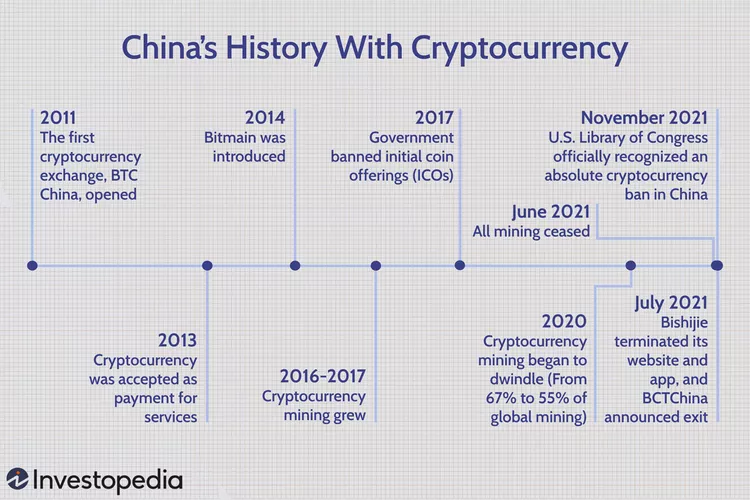
Leading Chinese Social Media Platform Removes Accounts of 80 High-Profile Crypto Influencers
by Fintech News Hong Kong October 9, 2023Weibo, one of the China’s biggest social media platforms, has removed the accounts of 80 popular influencers promoting cryptocurrencies, citing breach of local laws put in place to curb speculative trading and the promotion of cryptocurrencies, the South China Morning Post reported.
The Weibo accounts, which had more than eight million followers each, had infringed regulations covering areas such as marketing, Internet safety, telecommunications, trade and finance, the tech firm said in a statement. Weibo added that it would continue to “receive complaints from users” and initiate investigations on “illegal virtual currency trading information” in compliance with local laws.
The account suspensions are part of an ongoing nationwide crackdown on crypto speculation which accelerated last year. In August 2022, the Cyberspace Administration of China (CAC) said that social media platforms including Weibo and Baidu had removed 12,000 crypto-related accounts and over 51,000 social media posts promoting cryptocurrencies during that year alone.
At the time, the CAC said it would continue to strengthen its clampdown on illegal securities activities that exist on Internet platforms, reminding the public to take a thought-out approach to wealth management and refrain from taking part in cryptocurrency speculation to avoid personal losses.
An additional 131 accounts were suspended on Weibo in March 2023 over the violation of laws and regulations governing securities and marketing activities, the CAC said.
Crackdown on the crypto industry
China, once the Bitcoin trading and mining capital of the world, had progressively banned cryptocurrency activities throughout the years. This first started by forbidding banks from handling transactions related to bitcoin in 2013, followed by the prohibition of initial coin offerings (ICOs) in 2017, and culminated in the complete ban on crypto trading and mining in 2021.

China’s history with cryptocurrency, Source: Investopedia, September 2023
The moves came as China started working on its own digital version of a national currency. The e-CNY system, which began trialing in four big cities in 2020 and expanded to six additional regions in 2022, aims to improve the efficiency of the central bank’s payment system, provide a backup for the retail payment system, and enhance financial inclusion.
As of the end of June 2023, e-CNY had been used to make CNY 1.8 trillion (US$249.33 billion) worth of transactions, China’s central bank governor Yi Gang said in July 2023. Total e-CNY transactions reached 950 million, with 120 million wallets being opened.
China’s influencer marketing industry
China has one of the fastest-growing influencer marketing industries in the world, enabled by advanced functionality and the integration of social media, e-commerce and mobile payments.
This rapid growth was further propelled by COVID-19 prevention measures, which substantially increased the time Chinese consumers spend online.
According to The State of the Influencers – China 2023 report by Chinese advocacy marketing platform PJdaren, the average consumer now dedicate seven hours daily to Internet use, with around two-thirds of this time being spent on social or content apps.
Booming usage of social media in China is fueling the rise of the influencer economy. Between 2018 and 2020, the market grew by more than fivefold, soaring from CNY 241.9 billion (US$38.5 billion) to CNY 1.3 trillion (US$210 billion), data from the National Bureau of Statistics show. It is estimated that by the year 2025, the total market size of China’s influencer economy will reach CNY 6.7 trillion (US$1.035 trillion).
PJdaren estimates that China’s social media ecosystem had more than 10.1 million KOLs and KOCs in 2022. These influencers published an average 38.3 million posts on a daily basis.

The market size of China’s new influencer economy, Source: The State of the Influencers – China 2023, PJdaren
China issued new rules last year to regulate the booming sector and prevent abuse. The guidelines, published by China’s National Radio and Television Administration in June 2022, mandate influencers in the country to obtain “relevant qualifications” before talking about certain topics that require a “high level of professionalism” including finance, law and medicine during live-streaming sessions.








